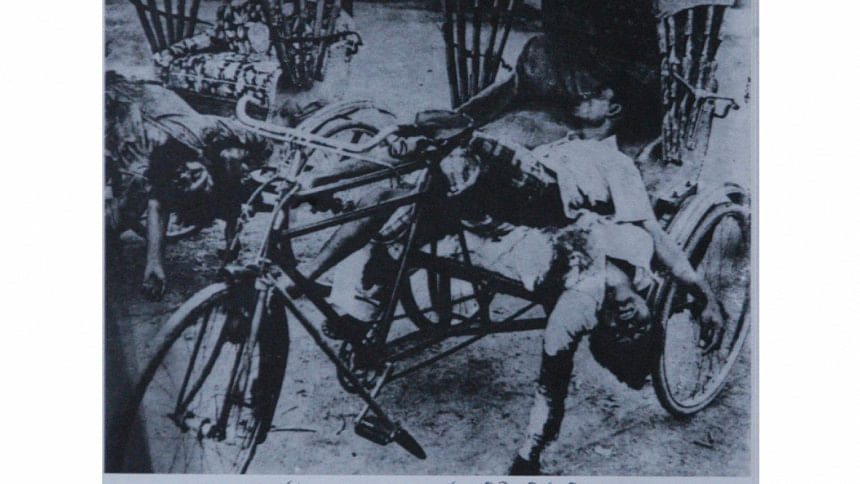The Black Night

The nation recalls today the Black Night of March 25.
On this fateful night in 1971, the Pakistani military junta launched the "Operation Searchlight" and mercilessly killed the Bangalee members of East Pakistan Rifles and police, students and teachers as well as thousands of common people in Dhaka city.
Jagannath Hall, a non-Muslim dormitory of Dhaka University, and Iqbal Hall, now Sergeant Zohurul Haq Hall, Pilkhana, Rajarbagh Police Lines, and Hindu-dominated areas of Old Dhaka were the main targets of the operation.
Siddiq Salik, then public relations officer of eastern command of Pakistan, wrote about the operation in his book, "Witness to Surrender".
Another book, "Rifle Roti Awrat" by Prof Anwar Pasha, narrated the barbarism carried out by the Pakistani troops on Dhaka University campus.
On the Dhaka University campus, the occupation forces on that night carried out a planned massacre of 200 students, 10 teachers and 12 employees.
Armed with heavy weapons such as tanks, automatic rifles, rocket launchers, heavy mortar, light machine gun, Pak soldiers encircled Dhaka University from east (unit 41), from south (unit 88) and from north (unit 26).
The first target of Operation Searchlight was Zahrul Hoque Hall as the then Non-cooperation Movement was organised under the banner of "Independent Bangladesh Students Movement Council" from that dormitory.
By March 25, all leaders of Chhatra League had left the hall.
After 12 o'clock, the army attacked Jagannath Hall with shelling of mortar and nonstop gun firing.
They entered the dormitory through north and south gates and killed students indiscriminately in each room. Around 34 students were killed. Some students of Jagannath Hall were resident of Ramna Kali Bari.
Archer Blood, the then consul general of US embassy in Dhaka, wrote in his book "The Cruel Birth of Bangladesh" that fire broke out at Rokeya Hall, girls' dormitory and, when the students tried to escape, the military started firing. From the conversation of military control room and army unit 88, a total of 300 students death was estimated."
The Operation Searchlight was one of very few military operations in post-World War-II history, which ultimately had been planned against civilians, just to kill a smart percentage of them and to scare the survivors.
About that night, American journalist Robert Payne wrote that at least 7000 people were killed and 3000 others were arrested in the crackdown.
In the wake of the Pak army action, Bangabandhu Sheikh Mujibur Rahman declared independence of Bangladesh through EPR wireless at 00-30 hours on March 26 (the night following March 25) in 1971 from his Road-32 residence at Dhanmondi in Dhaka.
The great leader also called upon the people to build a united resistance against the Pakistani occupation forces. Later, the military junta, in a bid to stop the legitimate movement of the Bangalees, arrested him on that night following his declaration of the country's independence.
Later, Bangabandhu was taken to the then West Pakistan where he had to spend long nine months in a Pakistani jail.
Following the declaration, the whole nation, except a few pro-Pakistani elements, joined the War of Liberation. And ultimately Bangladesh was freed from the Pakistani occupation forces with their surrender at the Race Course Maidan, later renamed as Suhrawardy Udyan, on December 16 in 1971.
The Sammilito Sangskritik Jote, the Liberation War Museum, Dhaka University Teachers Association and other organisations, different political parties and other socio-cultural organisations have chalked out elaborate programmes for today in observance of the Black Night to pay deep homage to the martyrs.

 For all latest news, follow The Daily Star's Google News channel.
For all latest news, follow The Daily Star's Google News channel. 



Comments